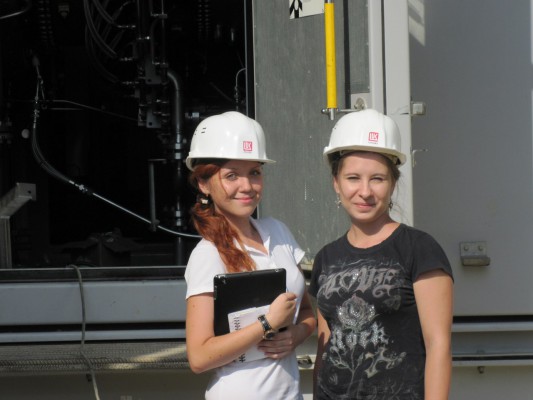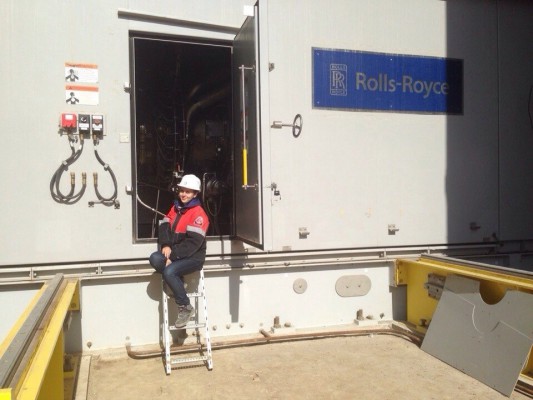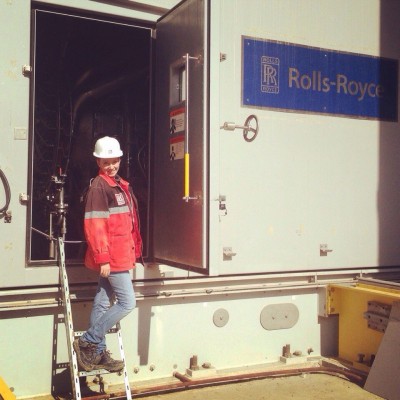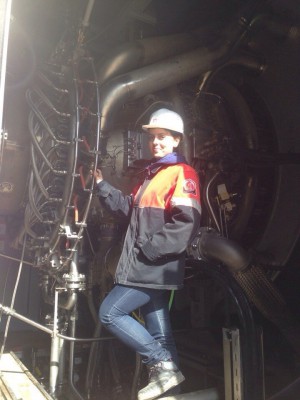Where to work?
The Caspian Higher School of Interpreting and Translation graduates Maria Avdaseva and Ekaterina Krylovaalong with School’s leading teachers Elena Yakovleva and Yulia Ibragimova had a chance to sharpentheir interpreting skills in the sphere of gas and steam turbines by working for LUKOILOJSK, a well-known and influential organization.Maria Avdaseva, the Schoolgraduate, shared her impressions: “No oneever said it would be easy. No one is saying. During and after the studies every student askshimself a question “Where shall I work?What is my future field of professional development where I can be useful as a good specialist?” Some continue the studieshopingtopostpone the decision, somerealize that they want something different and dramatically change the field of activity.However,there are those who want to dedicatethemselves to the profession they love and have chosen deliberately.The waythe Caspian Higher School of Interpreting and Translation graduates do,for instance. Thanks to real work, they can improve their interpreting skills, mastering their profession to the full extent. While working,they keep on studying. And the more they work, the more knowledge they acquire.An interpreter must be a versatile professional.He deals with different topics in differentfields.”
LUKOIL launched construction ofsteam and gas power unit (SGU – 135) unitfor gas chemical complex ofBudennovsk town in StavrapolKray.Compared with the existing thermal power plants, the CCGT unit will provide a 1.5-time reduction in the fuel specific consumption for power generation and a 2-3-time reduction in air pollutant emissions. It sounds ambitious and promising.
The Caspian Higher School of Interpreting and Translation graduate MariaAvdaseva says: “Before leaving I was extremelynervous.It was not about traineeship, it was about a real job. Your words matter a lot.You`ve got an actual customer whose demands you are to meet. And turbines. I`m not an engineer and I have not got any idea how it works.And the only thing that calmed me down a little was the fact Ekaterina and I have already been at turbineinstallations before. When we were first year MA students, our teachers Elena Yakovleva and YuliaIbragimova took us to AstrakhanSGU-235 where they worked. There wecould observe the difficult process of technical interpretation. Nevertheless,I was nervous. We worked in shifts. 3 interpreterswere always present at the siteas there were from 6 to 8 foreigners. Everyone was responsible for his own sphere of work but there was only one aim – to start the engine. Foreigners were reallyunderstanding and they always explained, showed and even drewif we needed it. Indeed, sometimes it was very difficult to understand what they were talking about and in their turn as they confessed it`s difficult to explain technical terms and definitions using simple words. Terms and definitions are another issue. We always had a notebook, a pen and electronic dictionary at hand. Every day we learned some new words. Every foreigner and Russian-speaking man uses different words to describe the same parts. Besides, we came across specific slang. Our vocabulary wasconstantly increasing and it keeps increasing.
I thinkit was a unique opportunity for us to see the work as it is. It helped to improve not only our interpreting skills but the character as well. The work at the factory with many unusual things around you – sealing glands, jumpers and terminals makes you only stronger. And of course smarter. It isn`t a usual thing to meet the girl who knows how to size a cable.









